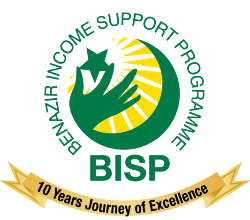In recent times, there has been an alarming rise in fraudulent activities targeting innocent individuals under the guise of government assistance programs. Benazir Income Support Program (BISP), a vital initiative in Pakistan aimed at providing financial aid to deserving families, has become a prime target for scammers. This article serves as an alert to the public regarding the latest fraudulent scheme circulating under the guise of BISP, particularly regarding the purported distribution of a 12000 cash amount in April.

Benazir Kafaalat Fraudsters Alert
Fake bank checks are being given to innocent and simple people in the name of the Benazir Income Support Programme. The public is informed to beware of these fraudsters. Benazir Kafaalat Programme does not pay any beneficiary in the form of a cheque.
Understanding the Fake Scheme
Scammers often capitalize on the vulnerability of individuals by promising financial assistance through illegitimate means. They may contact unsuspecting victims through various channels, including phone calls, text messages, or even doorstep visits, claiming to represent government programs such as BISP. These fraudsters may lure individuals with promises of substantial cash amounts, exploiting their desperation for financial aid.
How the Fraud Works
The fraudulent scheme typically involves the following steps:
- Initial Contact: Scammers reach out to potential victims, posing as representatives of BISP or affiliated organizations.
- False Promises: They make enticing promises of receiving a significant cash amount, often citing a specific sum such as 12000 rupees, to be distributed in April.
- Request for Personal Information: Victims are asked to provide personal and sensitive information, such as bank account details or identification documents, under the pretext of processing the payment.
- Issuance of Fake Checks: In some cases, fraudsters may provide fake bank checks or demand payment for processing fees, claiming it to be a prerequisite for receiving the promised funds.
- Financial Loss: Once victims comply with the demands and provide the requested information or payments, the scammers disappear, leaving them with financial losses and potential risks of identity theft.
Protect Yourself
To safeguard against falling victim to such fraudulent schemes, it is crucial to adopt the following preventive measures:
- Verify Sources: Always verify the authenticity of any communication claiming to be from government agencies like BISP. Cross-check contact details provided with official channels and websites.
- Exercise Caution: Be wary of unsolicited communications offering financial assistance, especially if they require you to provide personal information or make payments upfront.
- Educate Yourself: Stay informed about common scam tactics and warning signs. Be skeptical of offers that seem too good to be true.
- Secure Personal Information: Avoid sharing sensitive information, such as bank account details or CNIC numbers, with unknown individuals or entities.
- Report Suspicious Activities: If you encounter any suspicious activity or believe you have been targeted by fraudsters, report it immediately to the relevant authorities or law enforcement agencies.
Conclusion
As the BISP Alert Regarding 12000 Cash Amount in April highlights, the public must remain vigilant and cautious against fraudulent schemes masquerading as government assistance programs. By staying informed, exercising caution, and safeguarding personal information, individuals can protect themselves from falling prey to such scams. Let us collectively work towards creating awareness and combating fraudulent activities to ensure the safety and security of our communities.

